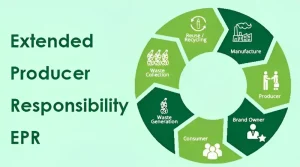In the wake of escalating concerns over climate change and environmental degradation, the imperative for sustainable practices and carbon neutrality has emerged as a pressing global agenda.

However, for India, a country at the nexus of rapid economic development and environmental preservation, this journey towards sustainability demands a harmonious collaboration between industry stakeholders and policymakers. At the forefront of India’s pursuit of carbon neutrality lies the necessity for robust governmental support and policy frameworks. It is imperative for governments to enact legislation incentivising sustainable practices while imposing penalties for environmental harm. Measures promoting renewable energy adoption, stringent emissions standards enforcement, and encouragement of eco-friendly packaging and waste management solutions are now more crucial than ever. Moreover, investment in infrastructure for recycling and waste management holds paramount importance. Enhanced waste collection, segregation systems, recycling facilities, and Extended Producer Responsibility (EPR) programs are pivotal for transitioning to a circular economy model, ensuring optimal resource utilisation and minimal environmental impact.
While governmental initiatives play a pivotal role, corporate entities must also embrace a forward-thinking vision for sustainability. Companies like UFlex Limited exemplify this ethos by introducing innovative recycling solutions and sharing expertise for industry-wide benefit. Their enzyme-based delamination technology and initiatives like Project Plastic Fix underscore the transformative potential of sustainable practices within corporate realms. Plastic packaging, often criticised for its environmental footprint, presents a unique opportunity for sustainability enhancement. Initiatives like Project Plastic Fix aim to redefine plastic treatment, extract additional value from packaging plastics, and significantly reduce environmental pollution. As India steers its trajectory towards carbon neutrality and circular economy sustainability, the collaboration between government and corporations assumes paramount significance. Through cohesive policymaking, fostering innovation, and embracing collaborative efforts, India can chart a course towards a future where economic prosperity seamlessly aligns with environmental stewardship.


